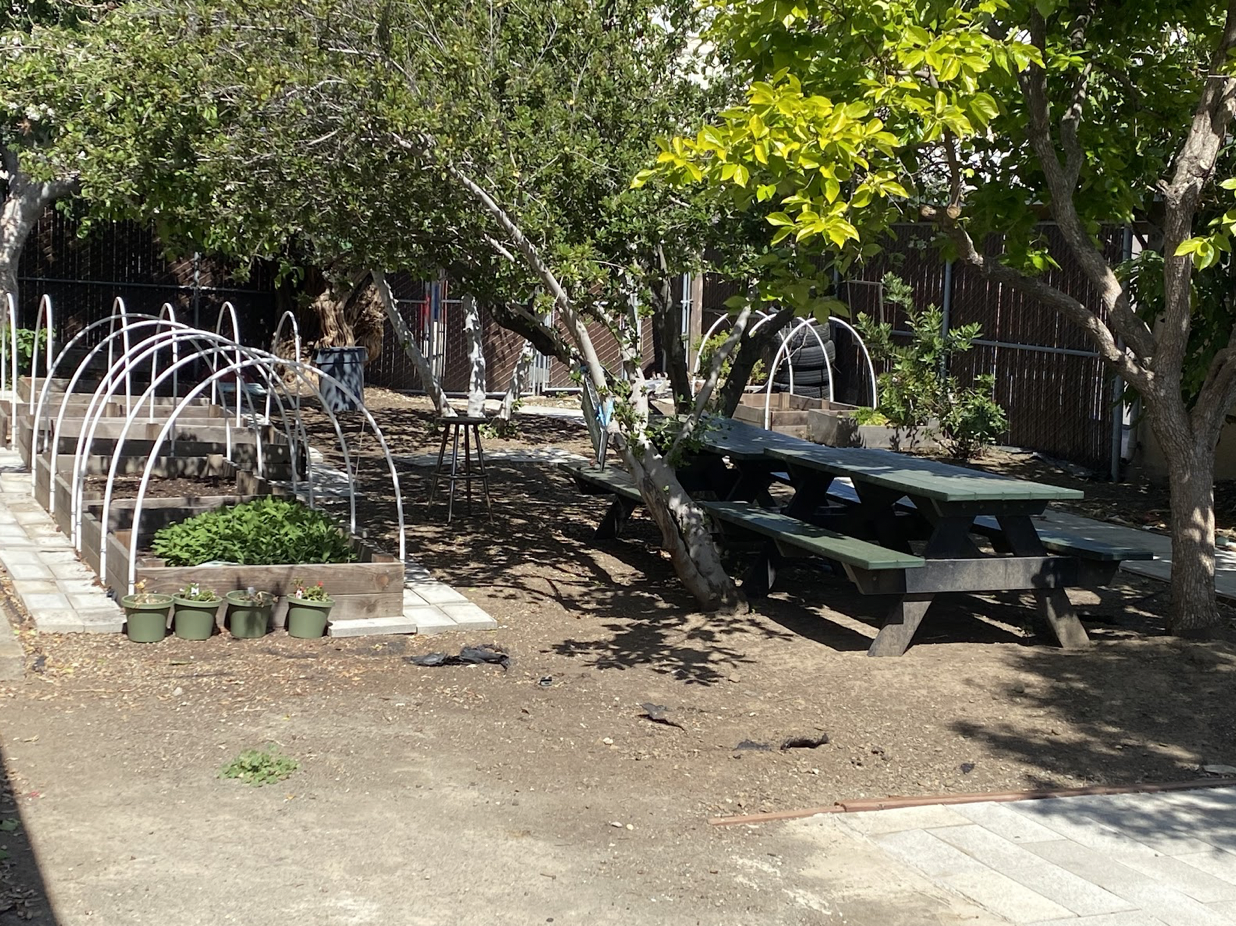Image provided by author.
For years, Washington’s garden space stood by the 90’s wing vacant. In 2019, Washington’s Special Ed Mild/ Moderate teachers, Mrs. Ravikrishnan, Mrs. Holt, and Ms. Lopez, who’s since left, decided to revamp the space as a way to teach students healthy habits, and get them engaged with the outdoors. Later, Advancement Via Individual Determination (AVID) joined the project with Ms. Lopez’s 6th period and started a mentoring program that involved working on the garden. But when COVID hit, the project was halted.
When in-person school started again, Ms. Ravikrishnan and Ms. Holt’s classes resumed work on the garden. The project began to grow.
Just before Thanksgiving, Lisa-Marie Burns, a Washington staff member who coordinates Washington’s AVID program and organizes efforts and uses funds for supplies on the project, was contacted by the county. “I was contacted by the county to answer questions regarding a new grant they were authoring entitled Healing Through Engagement,” she said.
Its title was eventually the reason it was used for the garden. “Using the grant for the garden was not the initial plan—but once we started planning the title of the grant (Healing Through Engagement) and understanding how the grant worked seemed like the best fit,” she said. The grant will be in effect following spring break to get the garden to operational capacity.
The title itself means bringing people together, community. When we returned to in-person school, in honor of the healing of students, the garden helped them come together. “A garden brings peace and tranquility, nature and resources and the goal is to use the garden concept to create community,” Ms. Burns said. This is reflected in the building process.
Hydroponics to herb, fruit to veggie, irrigation to entomology, and engineering to art are being built by students and scouts, bringing everyone together. Mehreen Rosmon, a Washington student in Interact and a part of the project said, “This project is a collaboration between staff and various student groups on campus. We currently have AVID, Special Education, Interact, Engineering, and Art working on this project alongside many student volunteers. Each group focuses on its own ‘mini-project’.”
When we returned to in-person school, in honor of the healing of students, the garden helped them come together.
As a part of Interact, she and others work on creating a hydroponic system, a compost bin, and a documentary for the garden. Other groups in the project work on different parts: Irrigation and architecture by Engineering, murals and aesthetics by Art, and team assistance by Special Education and AVID students.
By participating, they’re coming together and establishing a place of common ground. “We hope it to be an open place where classes can go outside and study, brunch, husky/flex, or lunch etc,” Burns stated. Students are healing after a unique and complicated time in their lives.
Rosmon believes that the project has succeeded in bringing them together. “Yes! Through this project, we have been able to connect with a large number of students who simply want to help!” she said. She also said she hopes to further teach other students about environmental practices once the project is finished.
The project is still in development. Ms. Burns said, “We hope to have a ribbon cutting and have everything planted for spring/summer by May and have a seasonal calendar established.” Future plans for the garden are still in the making, and hopes to share resources or even hold a seasonal event with other schools are in mind.
Dylan Mabunga is a sophomore at Washington High School. He was born in San Jose, California, and moved to Fremont when he was two. This is his first year with the Hatchet. Topics he is interested in include world events, sports, and movies and video games. Dylan enjoys playing basketball, video games, and hanging out with friends. Dylan is unsure of what he wants to do in the future, but currently is planning on going to college and is unsure what to major in.

